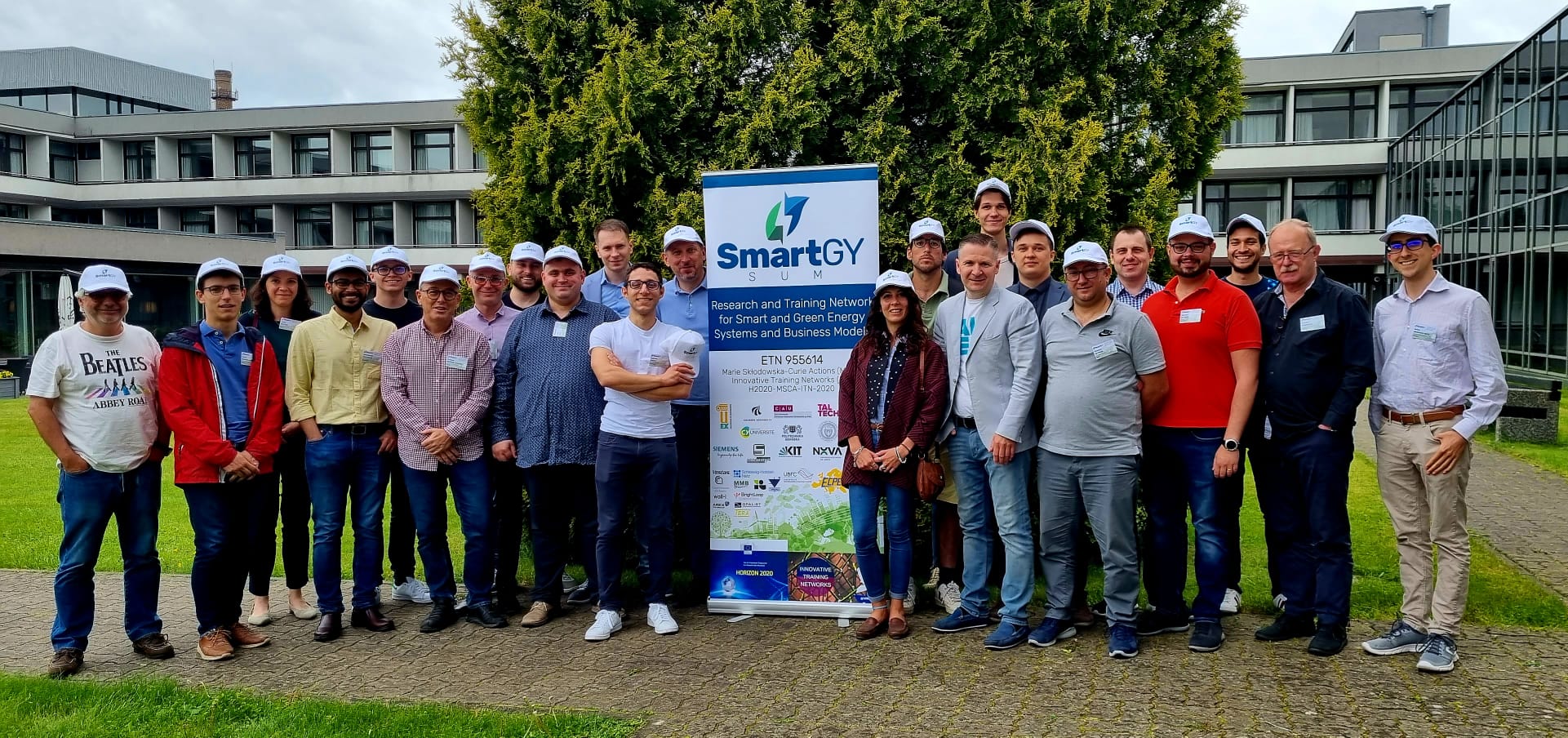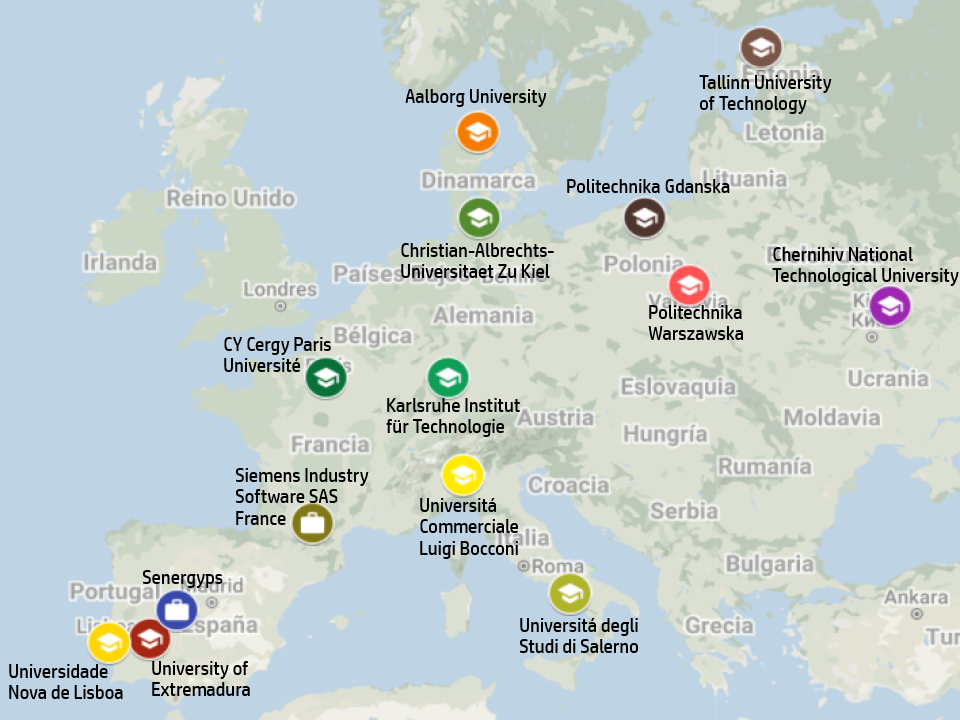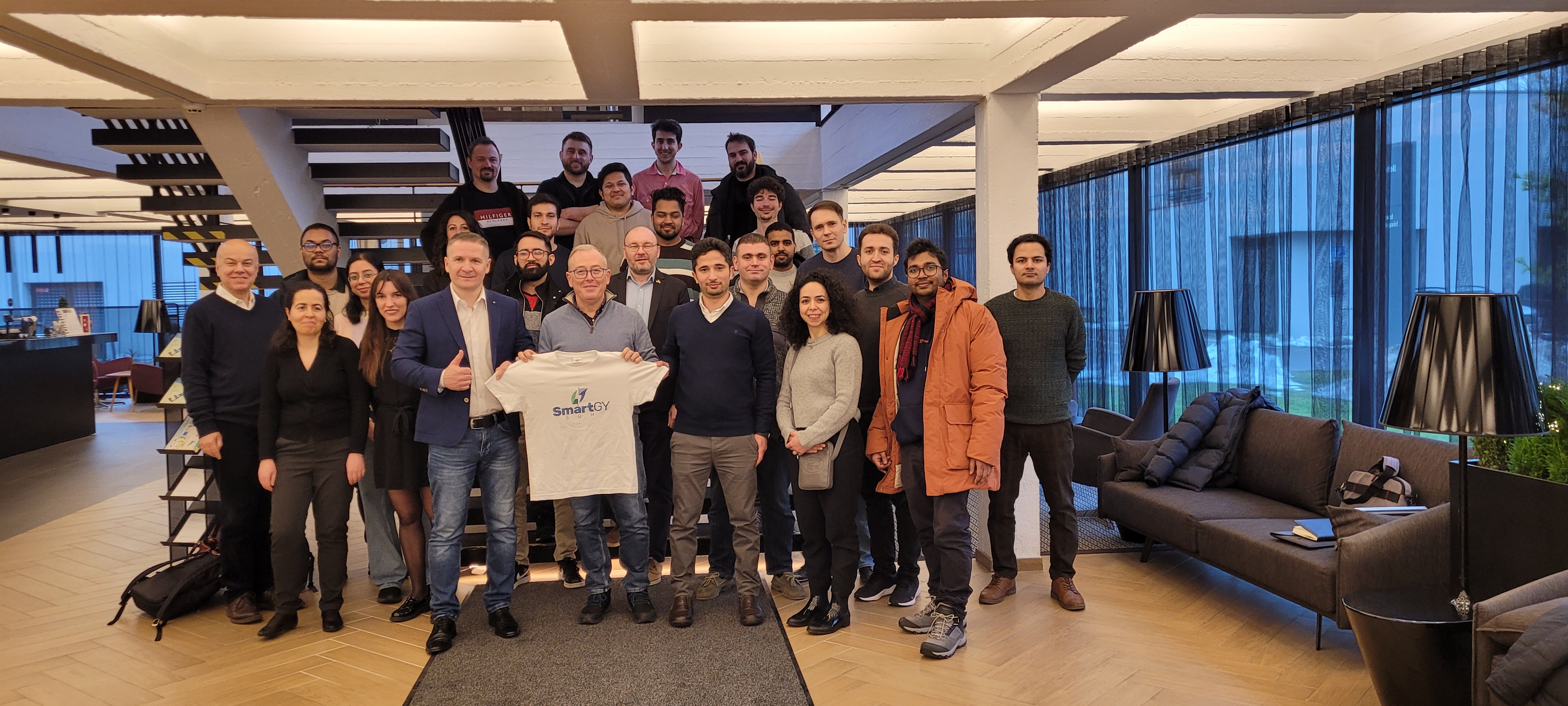Research
The project research objectives and the procedures to achieve them are detailed in this section.
Training
The training methodology and aproach are described in this module.
Consortium
The consortium are the entities that participate and pool resources in order to achive the aims of the project.
Latest SMARTGYsum News
SMARTGYsum final and closing event in Badajoz, March 19-20, 2026
The SMARTGYsum final and closing event will be held in Badajoz from March 19 to 20, 2026. The event will include sessions where main results will be exposed to general audience and special sessions about specific related topic.
SMARTGYsum consortium meets in Brussels to strengthen links between research and European policy
On 15–16 January 2026, the SMARTGYsum consortium met in Brussels for a series of strategic meetings aimed at promoting project results, reinforcing dialogue with European stakeholders, and coordinating the final phase of the project. Hosted in part by the Delegación de Extremadura en Bruselas, the meetings provided a platform to exchange perspectives on how research, digitalisation, and innovation can contribute to accelerating Europe’s energy transition. The programme included presentations of scientific results, discussions on implementation challenges, and reflections on doctoral training and mobility within the project. Executive Committee meetings also addressed future actions, dissemination activities, and preparations for the final SMARTGYsum event in Badajoz. A dedicated session focused on SmartgySUM’s scientific outcomes, with individual research projects presented alongside a joint discussion on barriers to implementation and lessons learned. Particular attention was given to: The progress of Early Stage Researchers (ESRs) Mobility and secondment experiences The overall impact of the project’s training activities The agenda also included exchanges with Members of the European Parliament and discussions with representatives of European institutions. These conversations highlighted the importance of ensuring that academic research and doctoral training actively inform policy development, regulatory frameworks, and real-world energy challenges. Overall, the Brussels meetings reaffirmed SmartgySUM’s role in bridging academic research, policy, and implementation, contributing to the development of resilient, digital, and citizen-centred energy systems in Europe.




